
 Buildings, roads, and man-made landscapes can harm the natural environment with their effect on the natural water cycle. Architects and designers need to be aware of the best practices and experts’ recommendations to specify the correct type of drainage system that serves users and protects the environment. This course discusses the positive contributions of modern drainage systems to the built environment and their role in improving sustainability. The technical and aesthetic aspects of trench drain design are also covered.
Buildings, roads, and man-made landscapes can harm the natural environment with their effect on the natural water cycle. Architects and designers need to be aware of the best practices and experts’ recommendations to specify the correct type of drainage system that serves users and protects the environment. This course discusses the positive contributions of modern drainage systems to the built environment and their role in improving sustainability. The technical and aesthetic aspects of trench drain design are also covered.

https://redirect.aecdaily.com/s425610/www.aecdaily.com/course/1033178
This course contains sustainable design information. See the course details page for more information.
This course contains accessible design information. See the course details page for more information.
This course is ONLINE: SELF-PACED. Experience it on your own schedule, at your convenience.

 The Americans with Disabilities Act (ADA) sets the minimum requirements for newly designed and constructed or renovated state and local government facilities, public accommodations, and commercial facilities to be readily accessible to and usable by individuals with disabilities. Many projects must also follow the provisions of the 2017 version of ICC A117.1, Standard for Accessible and Usable Buildings and Facilities. This course identifies the benefits of accessibility standards and the prescriptive requirements for accessible restrooms set by the ADA and ICC A117.1.
The Americans with Disabilities Act (ADA) sets the minimum requirements for newly designed and constructed or renovated state and local government facilities, public accommodations, and commercial facilities to be readily accessible to and usable by individuals with disabilities. Many projects must also follow the provisions of the 2017 version of ICC A117.1, Standard for Accessible and Usable Buildings and Facilities. This course identifies the benefits of accessibility standards and the prescriptive requirements for accessible restrooms set by the ADA and ICC A117.1.

https://redirect.aecdaily.com/s2527/www.aecdaily.com/course/1022095
This course contains accessible design information. See the course details page for more information.
This course is ONLINE: SELF-PACED. Experience it on your own schedule, at your convenience.

 Dual-flush wall-mounted toilets help create modern, stylish bathrooms that strike a balance between sustainable water efficiency, flexible design, and space savings. This course compares this style with other traditional types of toilets, discusses how wall-mounted toilets benefit commercial and residential users, and explains how they satisfy the Americans with Disabilities Act (ADA) and other accessibility and building code requirements.
Dual-flush wall-mounted toilets help create modern, stylish bathrooms that strike a balance between sustainable water efficiency, flexible design, and space savings. This course compares this style with other traditional types of toilets, discusses how wall-mounted toilets benefit commercial and residential users, and explains how they satisfy the Americans with Disabilities Act (ADA) and other accessibility and building code requirements.

https://redirect.aecdaily.com/s6403/www.aecdaily.com/course/934626
This course contains sustainable design information. See the course details page for more information.
This course is ONLINE: SELF-PACED. Experience it on your own schedule, at your convenience.

 Efficient water use and conservation are key parts of sustainable development. Toilets account for the greatest water usage within a residential home (typically 30 percent). Dual-flush toilets are an option to reduce water usage by up to 20 percent while meeting the LEED® v4 Water Efficiency requirements. This toilet option can also be incorporated into accessible bathrooms and use touchless flush plates. The most attractive feature of the dual-flush toilet is that it does not require significant behavioral changes for benefits to be realized.
Efficient water use and conservation are key parts of sustainable development. Toilets account for the greatest water usage within a residential home (typically 30 percent). Dual-flush toilets are an option to reduce water usage by up to 20 percent while meeting the LEED® v4 Water Efficiency requirements. This toilet option can also be incorporated into accessible bathrooms and use touchless flush plates. The most attractive feature of the dual-flush toilet is that it does not require significant behavioral changes for benefits to be realized.

https://redirect.aecdaily.com/s6403/www.aecdaily.com/course/481752
This course contains sustainable design information. See the course details page for more information.
This course is part of one or more "Course Collections". Click here to view the details.
This course is ONLINE: SELF-PACED. Experience it on your own schedule, at your convenience.

 Drying hands thoroughly is crucial for maintaining hygiene levels, and when a hand dryer is too slow, the result is many people give up trying to dry their hands and leave the bathroom with wet or damp hands. Research has shown that damp hands can transmit up to 1,000x more bacteria than dry hands. This course discusses hand-drying concepts and the advantages of hand dryers with air knife technology. It also reviews the impact the choice of hand-drying equipment has on public health, occupant comfort, facility operations, and our environment.
Drying hands thoroughly is crucial for maintaining hygiene levels, and when a hand dryer is too slow, the result is many people give up trying to dry their hands and leave the bathroom with wet or damp hands. Research has shown that damp hands can transmit up to 1,000x more bacteria than dry hands. This course discusses hand-drying concepts and the advantages of hand dryers with air knife technology. It also reviews the impact the choice of hand-drying equipment has on public health, occupant comfort, facility operations, and our environment.

https://redirect.aecdaily.com/s485236/www.aecdaily.com/course/909216
This course contains sustainable design information. See the course details page for more information.
This course is ONLINE: SELF-PACED. Experience it on your own schedule, at your convenience.

 The US has the highest incarceration rate in the world, and with recidivism rates as high as 75% within five years, the prospects for released inmates are dim. There is no simple solution to these issues, but one approach is to focus on rehabilitation to help inmates reintegrate successfully into society upon release. This course looks at the role evidence-based building design can play in a rehabilitative environment that promotes healing, autonomy, and growth. Design strategies are presented with a focus on ADA-compliant, ligature-resistant plumbing products and water management systems that support a clean, safe, secure, rehabilitative environment.
The US has the highest incarceration rate in the world, and with recidivism rates as high as 75% within five years, the prospects for released inmates are dim. There is no simple solution to these issues, but one approach is to focus on rehabilitation to help inmates reintegrate successfully into society upon release. This course looks at the role evidence-based building design can play in a rehabilitative environment that promotes healing, autonomy, and growth. Design strategies are presented with a focus on ADA-compliant, ligature-resistant plumbing products and water management systems that support a clean, safe, secure, rehabilitative environment.

https://redirect.aecdaily.com/s795432/www.aecdaily.com/course/946684
This course contains accessible design information. See the course details page for more information.
This course is ONLINE: SELF-PACED. Experience it on your own schedule, at your convenience.

 Universal hot water availability is generally taken for granted. At a time when energy prices and sources, environmental concerns, and water shortages are increasing in significance, it is important to produce hot water in a manner that addresses all these issues. This course explains how electric tankless water heaters (ETWHs) do this while also improving health and safety conditions and reducing costs. The examination includes detailed descriptions of many types of ETWHs and the basic calculations and selection criteria for the most suitable system.
Universal hot water availability is generally taken for granted. At a time when energy prices and sources, environmental concerns, and water shortages are increasing in significance, it is important to produce hot water in a manner that addresses all these issues. This course explains how electric tankless water heaters (ETWHs) do this while also improving health and safety conditions and reducing costs. The examination includes detailed descriptions of many types of ETWHs and the basic calculations and selection criteria for the most suitable system.

https://redirect.aecdaily.com/s795432/www.aecdaily.com/course/887663
This course contains sustainable design information. See the course details page for more information.
This course is ONLINE: SELF-PACED. Experience it on your own schedule, at your convenience.

 Glass block adds light and beauty to exterior and interior projects through a wide array of patterns, sizes, and colors. This course reviews these options as well as the energy efficiency and fire ratings of glass block, installation methods, sustainable benefits, and prefabricated options for projects demanding durability, security, and resistance to extreme weather. The course concludes with case studies that demonstrate the unlimited design possibilities of this versatile product.
Glass block adds light and beauty to exterior and interior projects through a wide array of patterns, sizes, and colors. This course reviews these options as well as the energy efficiency and fire ratings of glass block, installation methods, sustainable benefits, and prefabricated options for projects demanding durability, security, and resistance to extreme weather. The course concludes with case studies that demonstrate the unlimited design possibilities of this versatile product.

https://redirect.aecdaily.com/s958811/www.aecdaily.com/course/964937
This course contains sustainable design information. See the course details page for more information.
This course is ONLINE: SELF-PACED. Experience it on your own schedule, at your convenience.

 Building systems can be enhanced by incorporating reflective insulation or radiant barriers into the building envelope. With effective insulation, heat transfer is reduced, resulting in less summer heat gain, and less winter heat loss. This course explains common and effective uses for reflective insulation and radiant barriers in a wide range of construction and building applications and demonstrates how these systems reduce energy usage, increase the lifespan of the mechanical equipment for heating and cooling, and reduce maintenance requirements and frequency of replacement.
Building systems can be enhanced by incorporating reflective insulation or radiant barriers into the building envelope. With effective insulation, heat transfer is reduced, resulting in less summer heat gain, and less winter heat loss. This course explains common and effective uses for reflective insulation and radiant barriers in a wide range of construction and building applications and demonstrates how these systems reduce energy usage, increase the lifespan of the mechanical equipment for heating and cooling, and reduce maintenance requirements and frequency of replacement.

https://redirect.aecdaily.com/s522670/www.aecdaily.com/course/992394
This course contains sustainable design information. See the course details page for more information.
This course is ONLINE: SELF-PACED. Experience it on your own schedule, at your convenience.

 Water is vital for life. As we move out of the pandemic, consumers are becoming more aware of their health and are taking steps to maintain healthy, active lifestyles, including drinking pure, clean water. This course explores the importance of staying hydrated and explains how dehydration can negatively affect health and wellness. The course also examines some of the most common contaminants in drinking water and the potential health effects of ingesting such water. Gain insight into how consumer lifestyle trends drive the need for healthier and more sustainable water in the kitchen and beyond and discover how consumers can meet these needs. Finally, learn about some of the newest water filtration systems available for cleaner, healthier, sustainable drinking water in the home.
Water is vital for life. As we move out of the pandemic, consumers are becoming more aware of their health and are taking steps to maintain healthy, active lifestyles, including drinking pure, clean water. This course explores the importance of staying hydrated and explains how dehydration can negatively affect health and wellness. The course also examines some of the most common contaminants in drinking water and the potential health effects of ingesting such water. Gain insight into how consumer lifestyle trends drive the need for healthier and more sustainable water in the kitchen and beyond and discover how consumers can meet these needs. Finally, learn about some of the newest water filtration systems available for cleaner, healthier, sustainable drinking water in the home.

https://redirect.aecdaily.com/s425610/www.aecdaily.com/course/1112782
This course is ONLINE: SELF-PACED. Experience it on your own schedule, at your convenience.

 Prefabrication, in whole or in part, is a rapidly growing construction trend that has influenced how buildings and their components are being designed and assembled on- or off-site. This course provides an overview of the various prefabrication approaches, focusing on prefabricated bathrooms. It explores how designers can identify the prefabricated bathroom products and suppliers that best integrate with building prefabrication to optimize product and building benefits, economies, performance, and quality.
Prefabrication, in whole or in part, is a rapidly growing construction trend that has influenced how buildings and their components are being designed and assembled on- or off-site. This course provides an overview of the various prefabrication approaches, focusing on prefabricated bathrooms. It explores how designers can identify the prefabricated bathroom products and suppliers that best integrate with building prefabrication to optimize product and building benefits, economies, performance, and quality.

https://redirect.aecdaily.com/s6403/www.aecdaily.com/course/1045555
This course is ONLINE: SELF-PACED. Experience it on your own schedule, at your convenience.

 What is wastewater energy recovery and how does it apply to the future of energy efficiency and decarbonization? In this course, we will explore how this previously overlooked source of energy loss from buildings can be utilized to endlessly recover and recycle energy within projects ranging from individual multifamily residential buildings to commercial and industrial applications and even to district energy networks. Wastewater heat recovery and transfer technologies used in small- and large-scale applications are also discussed, with case studies showcasing the practical applications and garnered benefits.
What is wastewater energy recovery and how does it apply to the future of energy efficiency and decarbonization? In this course, we will explore how this previously overlooked source of energy loss from buildings can be utilized to endlessly recover and recycle energy within projects ranging from individual multifamily residential buildings to commercial and industrial applications and even to district energy networks. Wastewater heat recovery and transfer technologies used in small- and large-scale applications are also discussed, with case studies showcasing the practical applications and garnered benefits.

https://redirect.aecdaily.com/s1070292/www.aecdaily.com/course/1096090
This course contains sustainable design information. See the course details page for more information.
This course is part of one or more "Course Collections". Click here to view the details.
This course is ONLINE: SELF-PACED. Experience it on your own schedule, at your convenience.

 Contemporary drinking fountains, water coolers, and water bottle refilling stations provide communities with access to safe, clean drinking water. This course recounts the history of the drinking fountain and addresses regulations surrounding drinking water distribution and treatment. It introduces touchless activation, compares the use of bottled water to bottle refillers, and provides guidelines for specifying commercial water delivery systems.
Contemporary drinking fountains, water coolers, and water bottle refilling stations provide communities with access to safe, clean drinking water. This course recounts the history of the drinking fountain and addresses regulations surrounding drinking water distribution and treatment. It introduces touchless activation, compares the use of bottled water to bottle refillers, and provides guidelines for specifying commercial water delivery systems.

https://redirect.aecdaily.com/s795432/www.aecdaily.com/course/957482
This course contains accessible design information. See the course details page for more information.
This course is ONLINE: SELF-PACED. Experience it on your own schedule, at your convenience.

 Made from one of the hardest and most abundant minerals in nature, engineered quartz is a beautiful, durable surface solution for a wide range of commercial and residential applications desiring the beauty of natural stone without its drawbacks. The raw materials of quartz surfacing are harvested from the Earth and formed into slabs via an innovative production process, resulting in a homogenous, nonporous material with superior performance and low maintenance requirements. Reviewed in this course are the features, fabrication guidelines, and design trends of quartz surfacing.
Made from one of the hardest and most abundant minerals in nature, engineered quartz is a beautiful, durable surface solution for a wide range of commercial and residential applications desiring the beauty of natural stone without its drawbacks. The raw materials of quartz surfacing are harvested from the Earth and formed into slabs via an innovative production process, resulting in a homogenous, nonporous material with superior performance and low maintenance requirements. Reviewed in this course are the features, fabrication guidelines, and design trends of quartz surfacing.

https://redirect.aecdaily.com/s976306/www.aecdaily.com/course/985229
This course contains sustainable design information. See the course details page for more information.
This course is ONLINE: SELF-PACED. Experience it on your own schedule, at your convenience.

 This presentation provides an overview of sustainable materials for the bath, including production, performance, maintenance, and frameworks for assessment, and focuses on recycled copper, sustainably made concrete, FSC®-certified bamboo, and reclaimed wood.
This presentation provides an overview of sustainable materials for the bath, including production, performance, maintenance, and frameworks for assessment, and focuses on recycled copper, sustainably made concrete, FSC®-certified bamboo, and reclaimed wood.

https://redirect.aecdaily.com/s610566/www.aecdaily.com/course/626812
This course contains sustainable design information. See the course details page for more information.
This course is ONLINE: SELF-PACED. Experience it on your own schedule, at your convenience.

 As we become more aware of the levels of toxins in our environment, we are realizing that the quality of air inside our homes is just as important as the quality of air outside our homes. This course outlines why indoor air quality is so important to our health and describes how to improve indoor air quality by using a balanced ventilation system.
As we become more aware of the levels of toxins in our environment, we are realizing that the quality of air inside our homes is just as important as the quality of air outside our homes. This course outlines why indoor air quality is so important to our health and describes how to improve indoor air quality by using a balanced ventilation system.

https://redirect.aecdaily.com/s19871/www.aecdaily.com/course/699542
This course contains sustainable design information. See the course details page for more information.
This course is part of one or more "Course Collections". Click here to view the details.
This course is ONLINE: SELF-PACED. Experience it on your own schedule, at your convenience.

 Keeping bathrooms and kitchens clean and hygienic is essential to health and well-being but can be challenging in busy family homes. This course introduces some basic principles of home hygiene, provides an overview of the most effective cleaning strategies, and shows how contemporary kitchen and bathroom technology and design innovations can make hygienic cleaning substantially easier. Technologies discussed include touchless activation, intelligent toilets, bidet seats, and antimicrobial surfaces.
Keeping bathrooms and kitchens clean and hygienic is essential to health and well-being but can be challenging in busy family homes. This course introduces some basic principles of home hygiene, provides an overview of the most effective cleaning strategies, and shows how contemporary kitchen and bathroom technology and design innovations can make hygienic cleaning substantially easier. Technologies discussed include touchless activation, intelligent toilets, bidet seats, and antimicrobial surfaces.

https://redirect.aecdaily.com/s8547/www.aecdaily.com/course/929417
This course contains sustainable design information. See the course details page for more information.
This course contains accessible design information. See the course details page for more information.
This course is part of one or more "Course Collections". Click here to view the details.
This course is ONLINE: SELF-PACED. Experience it on your own schedule, at your convenience.

 Ensure your turf, plants, and trees are getting the appropriate water—in the right quantity, with the proper safety, at the highest efficiency—to reflect your unique landscape environment. This course addresses the most important factors to be considered to achieve optimal performance. At the “root” of an effective irrigation system is proper water volume, pressure, and safety.
Ensure your turf, plants, and trees are getting the appropriate water—in the right quantity, with the proper safety, at the highest efficiency—to reflect your unique landscape environment. This course addresses the most important factors to be considered to achieve optimal performance. At the “root” of an effective irrigation system is proper water volume, pressure, and safety.

https://redirect.aecdaily.com/s425610/www.aecdaily.com/course/949020
This course is ONLINE: SELF-PACED. Experience it on your own schedule, at your convenience.

 “Sustainable” design isn’t just “environmental.” It’s design that works for and contributes to the health and welfare of all individuals as well as the planet, now and in the future. This course looks at hand dryers as part of sustainably designed restrooms and discusses how air knife hand dryers benefit the environment through energy efficiency, resource conservation, and waste reduction, and benefit all members of society by meeting ADA requirements and Universal Design principles.
“Sustainable” design isn’t just “environmental.” It’s design that works for and contributes to the health and welfare of all individuals as well as the planet, now and in the future. This course looks at hand dryers as part of sustainably designed restrooms and discusses how air knife hand dryers benefit the environment through energy efficiency, resource conservation, and waste reduction, and benefit all members of society by meeting ADA requirements and Universal Design principles.

https://redirect.aecdaily.com/s485236/www.aecdaily.com/course/656814
This course contains sustainable design information. See the course details page for more information.
This course contains accessible design information. See the course details page for more information.
This course is ONLINE: SELF-PACED. Experience it on your own schedule, at your convenience.

 From home offices to gyms to entertaining, homes have become multifunctional spaces. The use of smart technology provides innovative options for people to control and manage their homes for comfort and well-being on a daily basis. Smart home technology allows people to customize their homes. This course discusses how smart technology can interconnect household spaces to increase comfort, cleanliness, and well-being.
From home offices to gyms to entertaining, homes have become multifunctional spaces. The use of smart technology provides innovative options for people to control and manage their homes for comfort and well-being on a daily basis. Smart home technology allows people to customize their homes. This course discusses how smart technology can interconnect household spaces to increase comfort, cleanliness, and well-being.

https://redirect.aecdaily.com/s8547/www.aecdaily.com/course/963191
This course contains sustainable design information. See the course details page for more information.
This course is ONLINE: SELF-PACED. Experience it on your own schedule, at your convenience.

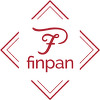 From fashion to function, the shower space of the bathroom is a focal point, offering a place of quiet respite for rejuvenation. Shower spaces should be built to last, using durable materials combined with sound installation practices in order to reduce life cycle and replacement costs. This course outlines the criteria used in designing water management systems for shower pans and walls and includes discussions on traditional and modern methods of waterproofing shower floors and walls, new methods of construction, and the innovative design options that are available for curbless shower pans.
From fashion to function, the shower space of the bathroom is a focal point, offering a place of quiet respite for rejuvenation. Shower spaces should be built to last, using durable materials combined with sound installation practices in order to reduce life cycle and replacement costs. This course outlines the criteria used in designing water management systems for shower pans and walls and includes discussions on traditional and modern methods of waterproofing shower floors and walls, new methods of construction, and the innovative design options that are available for curbless shower pans.

https://redirect.aecdaily.com/s13907/www.aecdaily.com/course/907639
This course is ONLINE: SELF-PACED. Experience it on your own schedule, at your convenience.

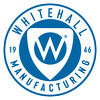 Healthcare facilities are striving to meet the needs of all patients and caregivers by offering healthy, safe, and inclusive spaces that can be repurposed quickly if needed. This course reviews innovations in plumbing design, such as vacuum plumbing and its applications, and explores how these design innovations support trending healthcare needs, including infection prevention, behavioral healthcare, and bariatric applications, and fulfill ADA requirements. Several case studies showcasing successful examples are also covered.
Healthcare facilities are striving to meet the needs of all patients and caregivers by offering healthy, safe, and inclusive spaces that can be repurposed quickly if needed. This course reviews innovations in plumbing design, such as vacuum plumbing and its applications, and explores how these design innovations support trending healthcare needs, including infection prevention, behavioral healthcare, and bariatric applications, and fulfill ADA requirements. Several case studies showcasing successful examples are also covered.

https://redirect.aecdaily.com/s795432/www.aecdaily.com/course/1083088
This course contains accessible design information. See the course details page for more information.
This course is part of one or more "Course Collections". Click here to view the details.
This course is ONLINE: SELF-PACED. Experience it on your own schedule, at your convenience.

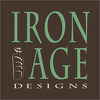 Metals are ubiquitous in today’s hardscape and are used in a variety of applications. This course reviews the important considerations related to the proper material, finish, and manufacturing technique to meet the function, aesthetic, and budget of metal designs for hardscape applications.
Metals are ubiquitous in today’s hardscape and are used in a variety of applications. This course reviews the important considerations related to the proper material, finish, and manufacturing technique to meet the function, aesthetic, and budget of metal designs for hardscape applications.

https://redirect.aecdaily.com/s921773/www.aecdaily.com/course/962287
This course contains accessible design information. See the course details page for more information.
This course is ONLINE: SELF-PACED. Experience it on your own schedule, at your convenience.

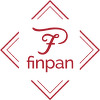 Bathrooms can be dangerous places for people with and without physical limitations. The prevalence of bathroom falls amongst persons of all age groups and levels of ability has driven the trend of accessible shower design. Presented here is an overview of how curbless shower pans are designed for durability and safety, and to meet the needs of accessible design. Included are discussions on traditional and modern shower pan design and installation methods and their associated drawbacks and benefits. Industry resources and standards are outlined.
Bathrooms can be dangerous places for people with and without physical limitations. The prevalence of bathroom falls amongst persons of all age groups and levels of ability has driven the trend of accessible shower design. Presented here is an overview of how curbless shower pans are designed for durability and safety, and to meet the needs of accessible design. Included are discussions on traditional and modern shower pan design and installation methods and their associated drawbacks and benefits. Industry resources and standards are outlined.

https://redirect.aecdaily.com/s13907/www.aecdaily.com/course/905632
This course contains accessible design information. See the course details page for more information.
This course is ONLINE: SELF-PACED. Experience it on your own schedule, at your convenience.

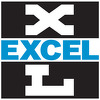 Designing restrooms to allow for and maximize proper hygiene is important in reducing the spread of germs. This course discusses the elements of hygienic restroom design and how reducing required touchpoints helps to increase safety and cleanliness. The key steps in proper hand hygiene are also discussed. The course then focuses on hand dryers and considers their impact on hand hygiene and sustainability. The future of commercial restroom design is then explored.
Designing restrooms to allow for and maximize proper hygiene is important in reducing the spread of germs. This course discusses the elements of hygienic restroom design and how reducing required touchpoints helps to increase safety and cleanliness. The key steps in proper hand hygiene are also discussed. The course then focuses on hand dryers and considers their impact on hand hygiene and sustainability. The future of commercial restroom design is then explored.

https://redirect.aecdaily.com/s5712/www.aecdaily.com/course/946869
This course contains sustainable design information. See the course details page for more information.
This course is ONLINE: SELF-PACED. Experience it on your own schedule, at your convenience.